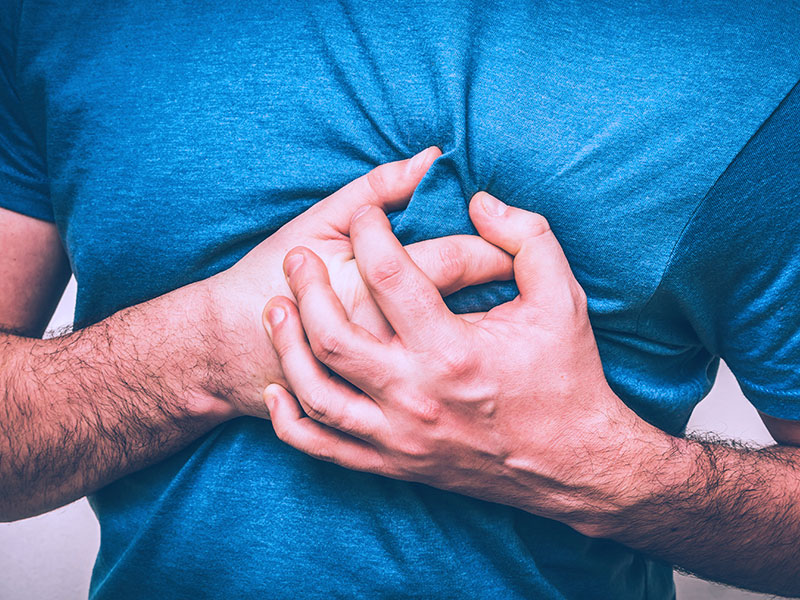


WHAT ARE CHEST INJURIES?
Chest injuries are injuries to the chest wall (the bones, skin, fat and muscles protecting your lungs, including your ribs and sternum) or any of the organs inside the chest.
CHEST INJURIES INCLUDE:
Chest injuries can be minor, such as bruising, or serious problems that need urgent medical attention.
One of the most common chest injuries is fractured ribs. These are caused by a strong blunt force, such as a fall from a height or a motor vehicle crash. In older people who have osteoporosis, only a slight force, such as a minor fall, can fracture a rib. A fractured rib is rarely serious. However, the force that caused the fracture can occasionally cause other problems, such as a bruised or collapsed lung, so it’s important to seek medical attention if you think you may have a fractured rib.
When should I call an ambulance?
Chest injuries that interfere with breathing or circulation can be serious or life threatening.
If the injury is severe, there may be internal bleeding. This might be obvious (e.g. coughing up blood), or not so obvious (e.g. pale and clammy skin, nausea, extreme thirst).
Go to an emergency department or call an ambulance:
What should I do while waiting for the ambulance?
First aid for a chest injury will depend on the type of injury:
What are the symptoms of chest injuries?
Signs of chest injury can vary, depending on the type of injury. The most common signs and symptoms are:
Symptoms of a fractured rib are:
What causes chest injuries?
Chest injuries may be caused by:
How are chest injuries diagnosed?
A chest injury is diagnosed with a physical examination and sometimes investigations such as a chest x-ray. A blood test may also be done. A CT scan may also be needed to check for injury to the heart. For a rib fracture, sometimes doctors can feel the broken ribs when they gently press the affected area. Sometimes rib fractures don’t show on a chest x-ray. If you appear well and the doctor doesn’t suspect complications, you may not need an x-ray. Your doctor may order a chest x-ray to look for any serious problems related to the fractured rib, such as a bruised or collapsed lung.
How are chest injuries treated?
Treatment of the chest injury will depend on the cause of the injury and how serious it is. The medical team will support breathing and circulation if necessary. You may be given oxygen and intravenous fluids or blood transfusions. If you have a severe chest injury, you will be admitted to the hospital.
A fractured rib will heal on its own, but it takes time. If you have a fractured rib, you may be asked to breathe deeply regularly to keep the air sacs in the lung open and prevent pneumonia, a type of chest infection.
If you are in pain, take pain killers. Pain relief is important so you will feel more comfortable to cough and take deep breaths. If your injury is minor, try to keep moving around and doing what you normally do. But avoid lifting, bending and any strenuous exercise until your pain and other symptoms have gone.
What are the complications of chest injuries?
The main complication from rib fracture or chest injury is a chest infection.
Other less common complications of chest injuries include:
